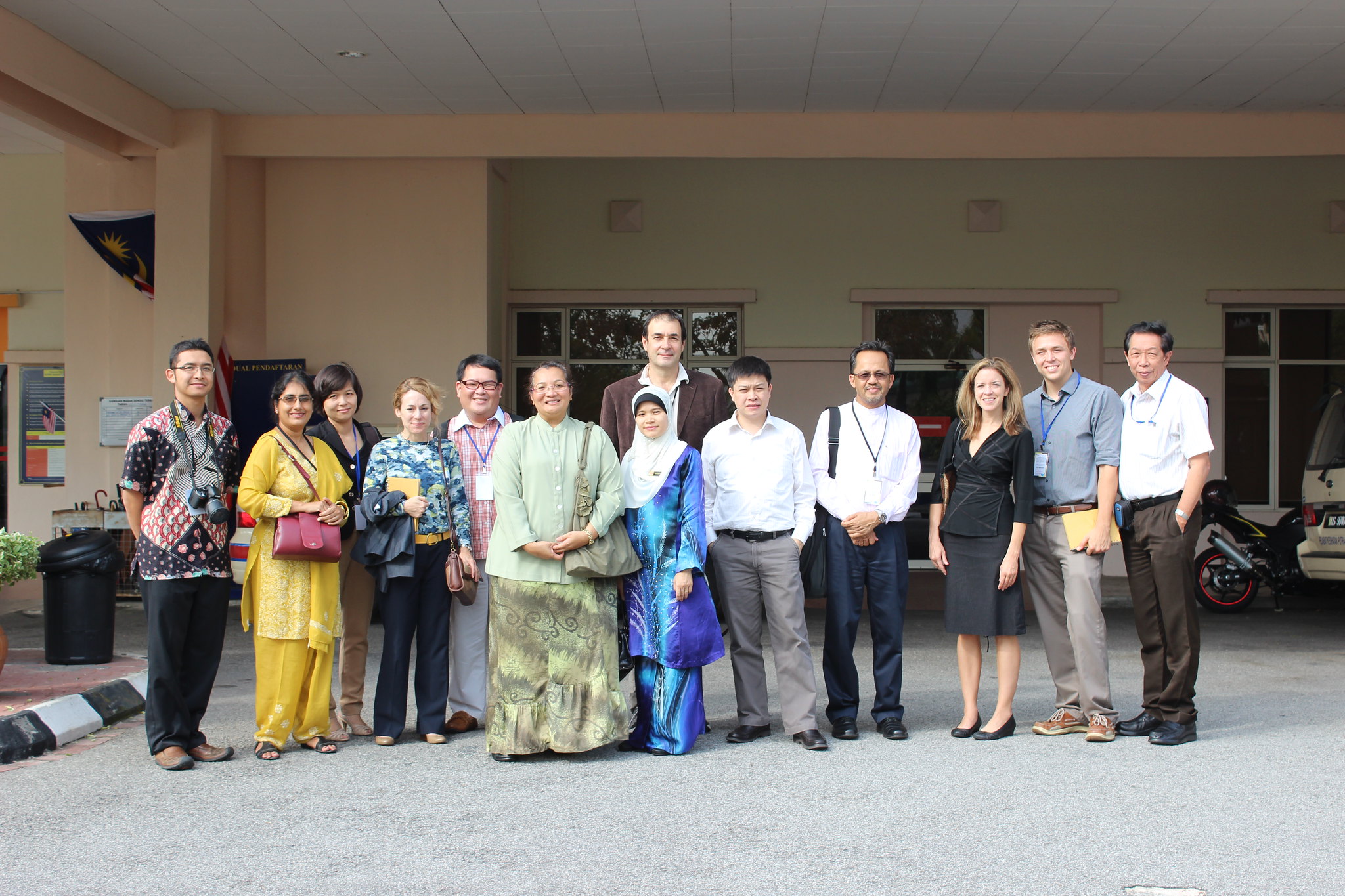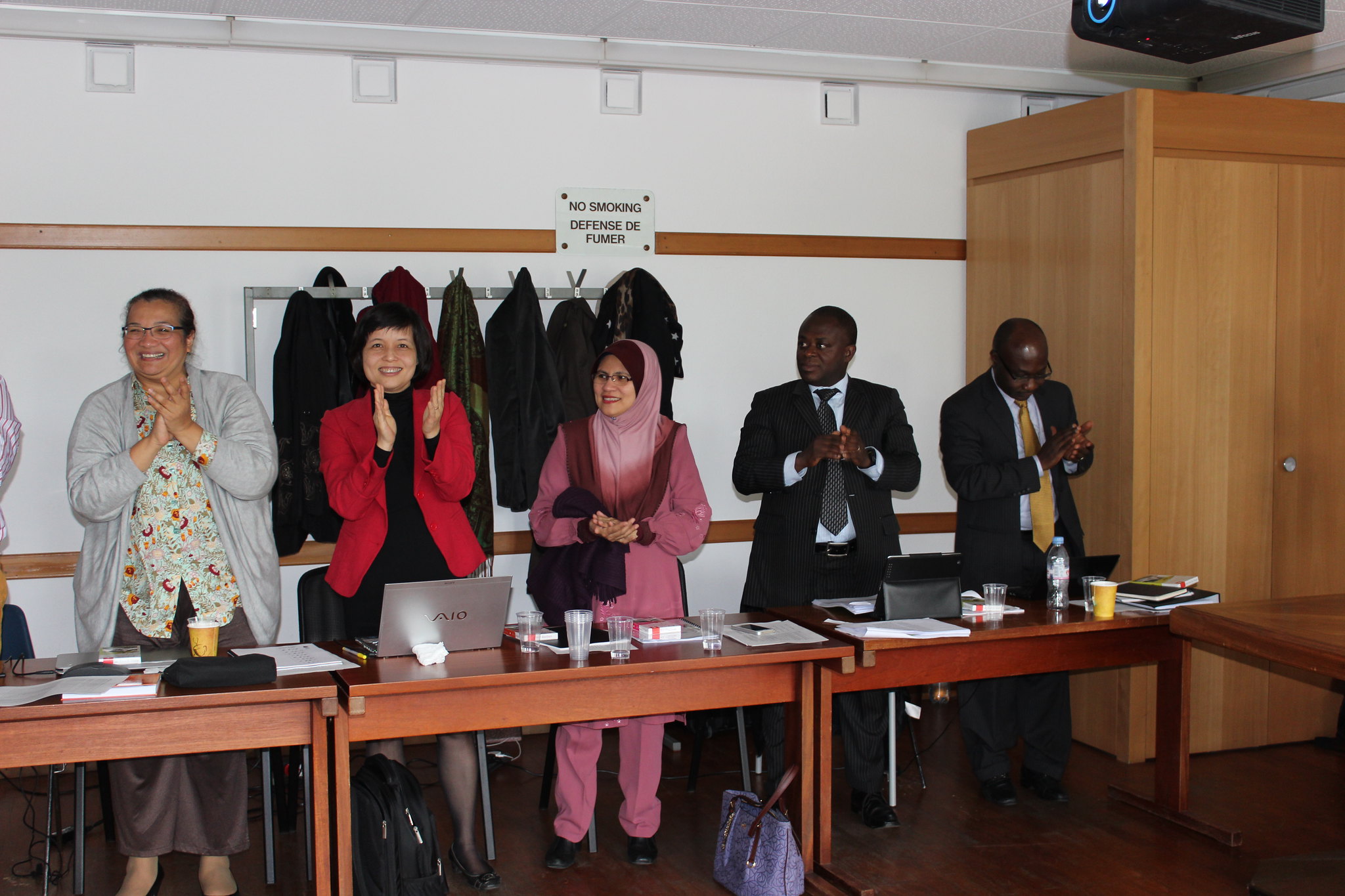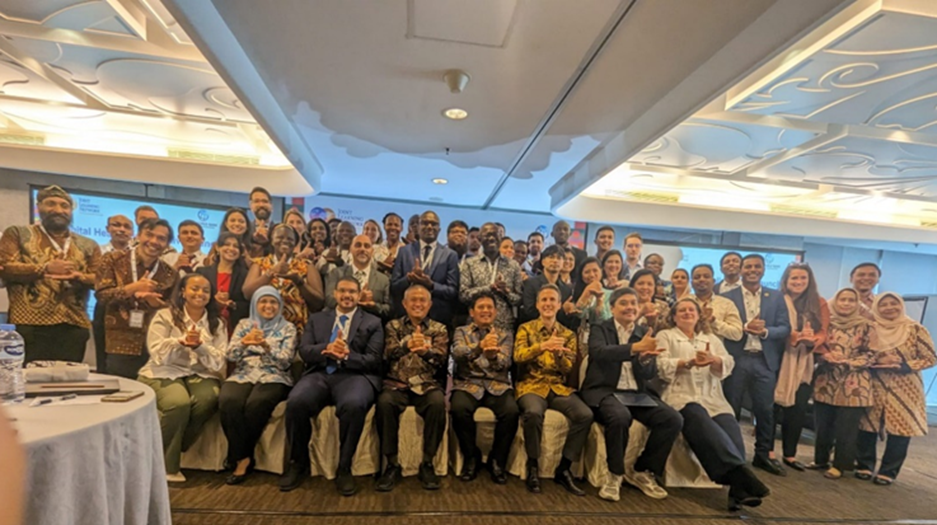Home > News & Events
News & Events
Stay up-to-date with the latest news and events from the Joint Learning Network.
Home > News & Events
News & Events
Stay up-to-date with the latest news and events from the Joint Learning Network.
Author: R4D Technical Facilitation Team The Foundational Reforms for Financing and Delivery of Primary Health Care (PHC) Collaborative brings together practitioners from 14 member countries of the Joint Learning Network for Universal Health Coverage – Botswana, Burkina Faso, Colombia, Ghana, Ethiopia, Indonesia, Kenya, Liberia, Lebanon, Malaysia, Mongolia, Nigeria, Philippines, Vietnam. The practitioners to share lessons and problem-solve on how to transfer resources directly to PHC facilities and ensure effective use of these resources. At the inception of the collaborative, the practitioners identified three learning topics to tackle the pressing needs of the countries represented in the collaborative: resource allocation, provider payment mechanisms and provider autonomy. 26 members of the collaborative from Burkina Faso, Ethiopia, Ghana, Indonesia, Kenya, Malaysia, Mongolia, Nigeria and Philippines met in Accra, from April 23-24 2025, to delve into provider autonomy and the accountability mechanisms applied by countries. In this blog we share the key lessons from this meeting. If well-coordinated, multiple channels of PHC funds can ensure all inputs for PHC services are covered. Indonesia and Mongolia are examples of countries that are consolidating revenue sources to improve coordination. Indonesia and Mongolia have two predominant sources of PHC funds from the local government and from the health insurance fund (Jaminan Kesehatan Nasional – JKN and Health Insurance General Office – HIGO respectively) to the Puskesmas and Soum Health Centres respectively. Both sources have different financial management rules and are remitted to facilities through different payment methods. However, in both countries, these funds are received in a single bank account and providers are able to plan and budget for these funds as a single pot, which improves allocation of these resources at the provider level to the priorities at the PHC facility level. Countries should remain aware of the risks that a high level of fragmentation, with limited coordination, can present, and the administrative and reporting burden that it can pose to PHC managers. In countries where providers generate and retain internal revenue, they most commonly use these internally generated funds for medicines and operation and maintenance costs. The medicines are procured from different channels (1) central medical stores funded through the government budget, (2) private wholesalers and retailers with government budget funds or facility-generated revenue. In Burkina Faso, Gratuité funds are allocated to the medical stores – Centrale d’Achat de Médicaments Essentiels (CAME) for medicines. PHC facilities draw down from their allocation as needed. PHC facilities in Kenya can purchase directly from the Kenya Medical Supplies Authority (KEMSA) or the Mission for Essential Drugs and Supplies (MEDS) and the private market, when commodities are unavailable at KEMSA or MEDS. In countries where providers have autonomy for some of the PHC funds, there is a tendency to introduce a wide variety of accountability which can increase the administrative burden for PHC providers. Countries should assess the level of autonomy being granted to PHC facilities and take steps to achieve the right balance, keeping in mind the value of transactions taking place at this PHC level – particularly for high-frequency but low-value transactions. For example, in Ghana, once the regional directors approve their budgets, PHC facilities, which are recognized as budget management centres have the autonomy to spend their resources in line with their approved budgets and implementation plans. The facilities prepare financial reports and have finance officers to support financial management. This means they do not have to revert back to the regional director for approval for individual transactions after the budget and implementation plan are approved. Clearly defining indicators to measure accountability is an important step to help countries to strike the right balance to track the health outcomes that autonomy is expected to deliver. Most systems already have checks and accountability measures in place, and these can be sufficient to guide autonomy. Accountability without sufficient guardrails may also incentivize providers to prioritize expansion of services and profit over providing quality PHC services to the community. For example Mongolia has revised capitation rates four times since 2019, increasing resources for PHC, but the outcomes achieved were not commensurate with the increase in capitation funds. Mongolia is continuing to review regulations to better align provider behavior to achieve expected health outcomes. At the end of the meeting, participants summarized their key takeaways and actions they are taking to adapt the learnings from the meeting. As next steps, the technical facilitation team are consolidating the inputs from the meeting into a knowledge product that will describe the spectrum of provider autonomy across the 14 countries and the accountability arrangements in place. This will be validated at the final in-person meeting and disseminated as a global public good.
Universal health coverage (UHC) remains one of the world’s most consequential health goals, yet achieving it requires securing robust, sustainable financing—an increasingly complex challenge as many low- and middle-income countries are facing declining development assistance due to shifting geopolitical priorities. During the 78th World Health Assembly, we came together as part of the Joint Learning Network for Universal Health Coverage (JLN) to tackle this critical issue, sharing insights from domestic resource mob ilization efforts. From navigating complex budget negotiations to harnessing the power of collective knowledge, our experiences have revealed three strategic lessons that are reshaping how countries finance their path to health for all. 1. Strategically Earmarked Taxes Build Resilient Health Systems As practitioners working directly with domestic financing strategies, we’ve seen firsthand how governments can look to softly earmarked taxes as a politically feasible means to strengthen the sustainability and resilience of their health systems. In Ghana, the National Health Insurance Scheme was established with earmarked revenue from a consumption tax. While the system initially faced constraints from funding caps and delayed disbursements, recent policy changes signal a turning point. “The lifting of the cap speaks to the commitment of our country and government to make sure that there are funds available in-country locally to finance the health needs of our people,” explains Ruby, Director of the Strategic Health Purchasing Directorate of Ghana’s National Health Insurance Authority. Malaysia’s experience highlights the potential of soft earmarked taxation to meet evolving health system needs. Through sustained collaboration between the Ministries of Health and Finance, sugar and beverage taxes have been strategically directed toward health initiatives—creating dedicated funding streams while preserving fiscal flexibility. As Malaysia undertakes a comprehensive health sector transformation across both public and private sectors, policymakers continue to explore new sustainable health financing pathways that create a strong foundation for achieving universal health coverage. As Dinash, a member of Malaysia’s Health Transformation Office reflects, “Given fiscal realities, we are embracing creative and innovative approaches.” 2. Data-Driven Decision Making Maximizes Every Investment Sustainable UHC isn’t just about securing more money—it’s about using existing resources with maximum efficiency and impact. In Pak Ghufron’s role as President Director of BPJS Kesehatan (Indonesia’s Social Security Administering Body for Health), he’s learned that performance data is crucial for assessing the efficiency of health resource utilization. It’s not just about increasing funding, but about using existing resources more effectively. “It’s not just about more funding — it’s about smarter use of it.” – Dr. Ali Ghufron Mukti Indonesia’s experience showcases the power of data. The government captures and analyzes 1.9 million health claims and transactions nationwide, empowering policymakers and decision-makers with the information they need to strengthen care delivery, detect fraud, and make overall systems improvements across the health system. Building on these insights, they are now implementing phased reforms to: further optimize current resources, shift to outcome-based financing, and leverage private sector capacity to accelerate progress towards UHC. 3. Sustained Advocacy Turns Investment into an Imperative Perhaps the greatest challenge in domestic health financing isn’t technical—it’s political. Health ministers worldwide face the daunting task of competing for limited government resources against sectors that deliver more immediately visible returns, such as infrastructure projects like roads and bridges. External economic shocks and shifting donor priorities can further destabilize carefully constructed financing plans. In Ajay’s work as a lead economist with the World Bank, he has observed that successful health advocates must demonstrate how health investment drives outcomes far beyond the health sector itself. Practical tools can amplify these advocacy efforts. Resources like the Joint Learning Network’s evidence-based messaging guide, Making the Case for Health, provide health leaders with compelling, real-world examples and economic arguments that resonate with finance ministers and political leaders who control budget decisions. Our Collective Conclusion These three lessons converge on a powerful conclusion: achieving sustainable domestic health financing requires more than any single strategy. Success emerges from the strategic integration of innovative financing mechanisms, evidence-based resource optimization, and persistent, well-informed advocacy. As Joint Learning Network members, we continue to share experiences and advance collective knowledge. These lessons provide a roadmap for countries at every stage of their universal health coverage journey. The ultimate goal—health for all—remains ambitious, but the strategies to achieve it are becoming increasingly clear and actionable through our collaborative efforts. Acknowlegements About the Authors: Ali Ghufron Mukti, President Director BPJS Kesehatan (Social Security Administering Body for Health), Indonesia Dinash Aravind, National Health Financing, Health Transformation Office, Ministry of Health, Malaysia Ruby Aileen Mensah, Director, Strategic Health Purchasing Directorate. National Health Insurance Authority. Ghana. Michael Kent Ranson, Senior Economist, Health, The World Bank Ajay Tandon, Lead Economist, The World Bank and Lead Technical Facilitator, JLN Domestic Resource Mobilization Collaborative (Virtual) The authors would like to thank Hallie Goertz for her strategic communications support to the JLN, and Rahul S. Reddy Kadarpeta, JLN’s Executive Director, for his ideation, review, and editorial guidance on this article. For more information on how to join or partner with the Joint Learning Network, please email [email protected].

JLN Medical Audit Toolkit was adapted to design A decentralized audit system and scaled across states.

JLN Strategic Communications Practical Guide & Planning Tool was used in Nigeria to operationalize the BHCPF.

JLN Medical Audit Toolkit was adapted to design A decentralized audit system and scaled across states.

Cities in low- and middle-income countries are experiencing significant expansion. The World Bank estimates that India’s urban population will increase by 40% by 2036, necessitating an investment of $840 billion in infrastructure over the next five years. Given the urgent challenges related to urban health, how can low- and middle-income countries ensure access to integrated, quality, and affordable health care in line with their goal of achieving Universal Health Coverage (UHC)? This webinar, co-hosted by Management Sciences for Health and the Joint Learning Network, will focus on “Achieving Universal Health Coverage in Urban Settings: Incentives, Challenges, and Opportunities.” It will address emerging issues in urban health in India, Malaysia, and Bangladesh. The discussion will deliberate on innovative financing strategies for population health in urban areas, approaches to reducing out-of-pocket expenses, and how to leverage development finance to achieve equity and efficiency in healthcare delivery. Participants will also be able to engage in a Q&A session during the latter half of the webinar. For more information, click here. Register Now